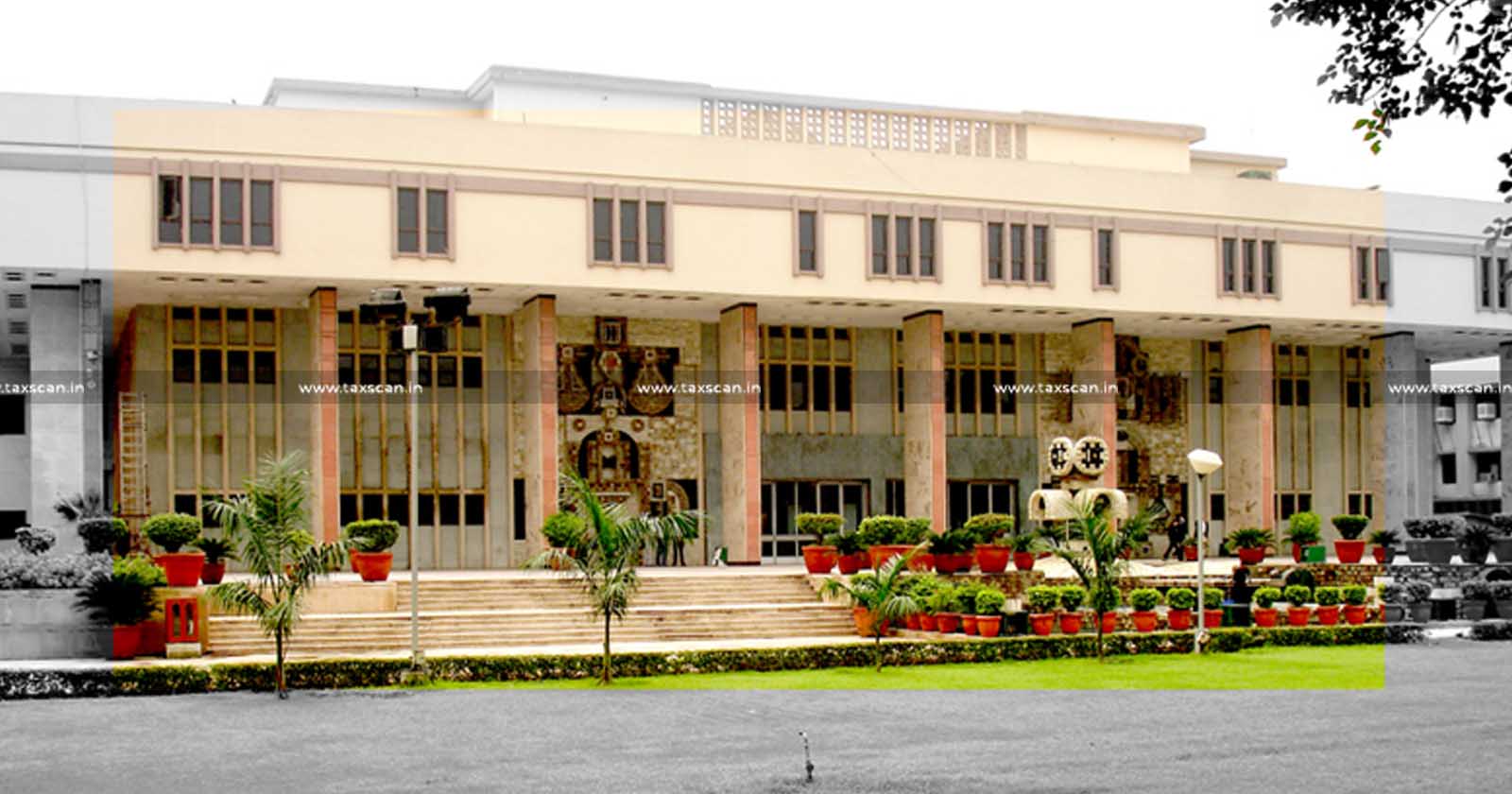Delhi HC declares CBDT Instruction dated 11th May 2022 to the Extent which Propounds 'Travel back in Time' theory Bad in Law [Read Order]

Delhi HC – CBDT – Extent which Propounds-Travel back – Time- Bad in Law-TAXSCAN
Delhi HC – CBDT – Extent which Propounds-Travel back – Time- Bad in Law-TAXSCAN
The Delhi High court has observed that the reference made in paragraphs 6.1 and 6.2(ii) of the Instruction No. 01 of 2022 dated 11.05.2022, to the extent it propounds the “travel back in time” theory, is bad in law.
The bench comprising Justice Rajiv Shakdher and Justice Girish Kathpalia, in the course of deciding a writ petition, emphasised that the extended 10-year limitation period for reassessment is applicable exclusively to amounts surpassing Rs. 50 lakhs.
The issue at hand pertained to the viability of notices served under Section 148 of the Income Tax Act, 1961, in light of the provisions outlined in Clauses (a) and (b) of Section 149(1) of the same Act.
The petitioners, who are assessees, argue that if the alleged concealed income is below the specified threshold of Rs. 50 lakhs, the limitation period prescribed in Clause (a) of Sub-section (1) of Section 149, which is three years from the end of the relevant Assessment Year (AY), should apply.
They argued that the extended limitation period under Section 149(1)(b), spanning beyond three but not exceeding ten years, requires specific conditions to be met. One condition is that the income escaping assessment must be Rs. 50 lakhs or more. However, the alleged income in this case is below this threshold. The assessees contend that applying Section 149(1)(a) and (b) would make the notices ineffective, a position contested by the revenue.
As per the revenue, the notices are within limitation based on a conjoint reading of the provisions mentioned above with the judgment rendered by the Supreme Court dated 04.05.2022 in Union of India and Ors. vs. Ashish Agarwal, Instruction No.01 of 2022 dated 11.05.2022 issued by the CBDT in exercise of powers under Section 119 of the Act and the Taxation and Other Laws (Relaxation and Amendment of Certain Provisions) Act, 2020 (TOLA).
The court noted that the revenue’s stand (which is primarily based on the CBDT Instruction dated 11.05.2022) that the directions issued by the Supreme Court in Ashish Agrawal’s case, when read along with TOLA, will allow the “…extended reassessment notices to travel back in time to their original date when such notices were to be issued....” is unsustainable in law for the following reasons:
- The law does not support the travel back in time theory propounded by the revenue. Such theory is neither borne out from the decision rendered by the Supreme Court in Ashish Agarwal’s case nor does it have any roots in the provisions of the 1961 Act as amended by FA 2021. As a matter of fact, TOLA also does not support this theory.
- Contrary to the revenue’s submission, TOLA has created no such legal fiction which would allow the notices issued under Section 148, which were issued in and about May-June 2022, to be treated as having been issued on or before 31.03.2021, to calculate the period of limitation prescribed in Section 149(1)(a) of the 1961 Act. [See Keenara Industries Pvt. Ltd. vs. ITO, Surat 2023 (3) TMI 104 (Gujarat High Court); Rajiv Bansal v. Union of India and Ors 2023 (2) TMI 1081 (Bombay High Court) and Mon Mohan Kohli (Delhi High Court) paras 86 to 89]
- The Instruction dated 11.05.2022 issued by the CBDT, which states in paragraph 6.1 that the extended reassessment notices would travel back in time to their original date when such notices were issued, provides no clarity as to what that “original date” would be.
- The revenue's inconsistency lies in its desire to revert to the pre-FA 2021 period of limitation while simultaneously applying the amended provisions. This results in conflicting end dates for the limitation period, with AYs 2016-17 and 2017-18 having expiration dates of 31.03.2023 and 31.03.2024, respectively, under unamended provisions. Consequently, TOLA would not be applicable, contrary to the revenue's claim, as it pertains to limitations expiring between 20.03.2020 and 31.03.2021.
- The Supreme Court's decision in Ashish Agarwal's case explicitly states that the new regime outlined in FA 2021 applies post 31.03.2021. The judgment does not endorse the revenue's "travel back" theory. Instead, it specifies that Section 148 notices issued between 01.04.2021 and 30.06.2021 should be treated as notices under Section 148A(b), representing the new regime. The Supreme Court did not suggest that the contested notices under Section 148 should be deemed issued before 31.03.2021, under the unamended provisions. The court's directive to treat Section 148 notices under the new regime aims to prevent reassessment proceedings from failing, even when viable under FA 2021.
The revenue's "travel back in time" theory is deemed arbitrary because, as per Section 153(2) of the 1961 Act, reassessment proceedings are mandated to conclude within twelve months from the end of the Financial Year (FY) in which notice under Section 148 is served. If the notice is construed to go back to 31.03.2020/31.03.2021, reassessment should have concluded by 31.03.2021/31.03.2022. However, the revenue's portal indicates a completion date of 31.03.2024, considering the notices were served in FY 2022-23, noted the High Court.
The bench clearly stated that the “circulars issued by the CBDT cannot run contrary to the decision of the Supreme Court. Likewise, the delegate cannot act in contravention of the Parent Act. Thus, the circulars/instructions/notifications issued by the Central Government cannot override the Parent Act.”
While quashing the reassessment notice and orders under Section 148A(d), the high Court concluded that “the reference made in paragraphs 6.1 and 6.2(ii) of the Instruction dated 11.05.2022, to the extent it propounds the “travel back in time” theory, is declared bad in law.”
To Read the full text of the Order CLICK HERE
Support our journalism by subscribing to Taxscan premium. Follow us on Telegram for quick updates


